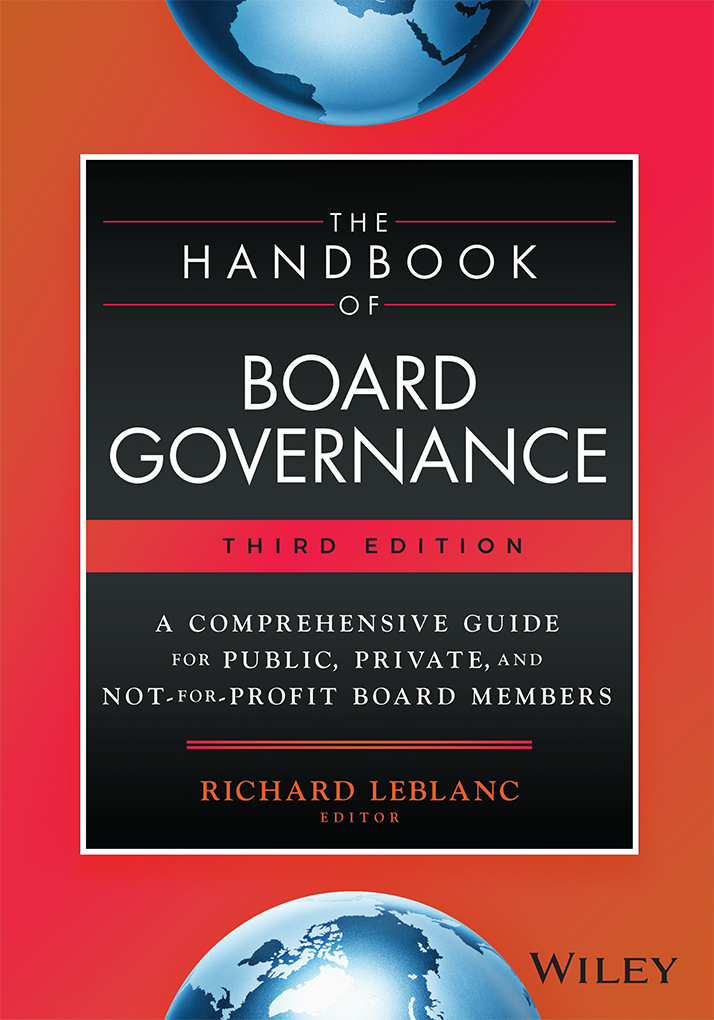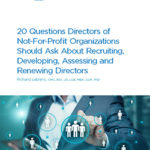If the CEO of SNC Lavalin allegedly over-rode his own CFO and breached the company’s code of ethics in authorizing $56 million of questionable payments to undisclosed agents that the federal Canadian police are now investigating, did the board of directors of SNC Lavlin have a role to play?
If the RBC (formerly Royal Bank of Canada) is alleged by a US regulator to have made “material false statements” in connection with non-arms length trades, reported in the Wall Street Journal to be “a scheme of massive proportion,” did the board of directors of RBC have a role to play?
The answer is “it depends” in these and similar cases. Speaking generally, as all allegations have yet to be proven, it is not credible to argue that boards do not have a role to play in compliance and reputational oversight. A board is the only body that has the legal authority and power to control management and designate all compliance and control systems. It alone acts or fails to act. A board is paid, handsomely paid at the senior most levels in Canada, to take all reasonable steps consistent with best practices, to ensure that it does know.
More regulation now, such as the UK Bribery Act, and the SEC Whistle-Blower Rule, are attempting to hold directors responsible and accountable for failing to direct proper anti-corruption and whistleblowing systems. The SEC rule enables employees to report wrongdoing directly to the regulator, thereby completely bypassing toxic work cultures where whistleblowing is neither independent nor anonymous. This legislation is putting the heat on boards and senior management, or at least it should be.
The Ontario Securities Commission last month released a scathing report about governance, risk management, internal control and auditing failures in companies operating in emerging markets.
In SNC Lavalin’s case, how could anomalous payments of this magnitude and internal controls be allegedly manually over-ridden, as is being reported, and would payments of this nature require explicit board or committee approval? SNC’s own internal report reveals a lack of disclosure of contracting parties and improper documentation and passwords. The board chair, Gwyn Morgan, said that the board wasn’t “able to really determine the use of those payments.” Back in 2010, federal minister Stockwell Day had signaled that certain aspects of SNC’s pricing were “absolutely unacceptable.”
The former CEO, Pierre Duhaime, is receiving almost $5 million dollars. A portion of this is stock options awarded before an independent review was completed, as is reported in the press. Basel includes (at page 38 of this report) a malus scheme whereby vesting occurs only if there is no breach of the code of conduct. Boards may wish to consider comprehensive – and independently drafted – malus or clawback clauses that include similar provisions.
It may be highly unlikely for fraud, bribery or ethical breaches to occur in a vacuum. Employees may have knowledge. The 2011 National Business Ethics Survey reveals that those who reported bad behavior they saw reached a record high of 65% and retaliation against employee whistleblowers rose sharply to more than one in five employees. The Conference Board’s Directors Notes, in “Lessons for Boards from Corporate Governance Failures” (see the PDF at page 3), reveals defects in whistleblowing systems that include lack of anonymity, lack of independence, lack of communication and training, lack of incentive, and lack of a proper investigation. These defects are exactly what the SEC rule is designed to address. As Chairwoman Schapiro has argued, “I find that many of the business ethics problems severe enough to be investigated by us are the result less of individual greed than of individuals succumbing to pressure from their peers.”
Whistle-blowing defects may be faults of a board. If a board is getting its information only from management, this is a red flag. Management may not even possess accurate knowledge, as we see in cybercrime. Independent assurance over anti-fraud and whistle-blowing procedures must occur for any prudent board. And “independence” does not mean the company auditor or legal counsel who assess their own or their firm’s work, nor any firm who does, has done, or seeks to do work for company management. Any assurance provider in this area could likely recommend action adverse to incumbent management or service providers.
Directors and boards themselves also need to step up. This includes international directors, moving board meetings to emerging markets, understanding corrupt business practices, structured deep engagement by directors, receiving third party assurance and disconfirming information (including culture surveys), and using alerts and social media. See “What Better Directors Do,” by NACD Directorship.
Both SNC Lavalin and RBC received governance recognition and were among the top twenty-five companies in the Globe and Mail’s Board Games for 2011. SNC Lavalin was the 2007 award winner from the Canadian Coalition for Good Governance.
The question therefore, is, could occurrences such as these happen on other boards of directors? If you are a director on a board and cannot reasonably answer “no,” to this question, perhaps you should consider some of the above recommendations.
Posted by Richard Leblanc on Apr 4, 2012 at 3:20 pm in Ethical Leadership, Citizenship and Integrity, Risk Governance and Combined Assurance |












